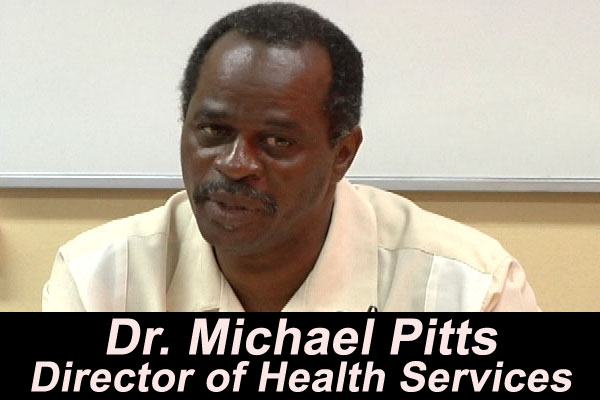An official blueprint of the Belize Health Sector Strategic Plan and the National Plan of Action for the Prevention and Control of Non-Communicable Diseases (NCDs) was presented by representatives of the Ministry of Health this morning at the Belize Biltmore Plaza Hotel.
The plan – which seeks to improve quality health services for a safer and healthier Belize by 2024 – is geared towards forming partnerships with stakeholders through innovative and collaborative efforts, and supporting the provision of effective health services for the overall wellness of the population and national development.
The Ministry of Health’s Lizett Bell, Health Planner and part of the steering committee for the national plan, stated that the plan – which at times proved challenging to develop – was first orchestrated in August 2012 and started to progress more steadily in May of 2013 when the Policy, Analysis and Planning Unit decided to establish a steering committee to ensure collaboration between the Ministry of Health and its stakeholders in the implementation of the plan, which is aimed at reducing the prevalence of NCDs and improving the management of these conditions to prevent complications and premature mortality.
In his presentation, Director of Health Services, Dr. Michael Pitts, said that NCDs are responsible for 60% of deaths worldwide and since the 1970s, they have become prominent in the disease profile of the country, accounting for 40% of deaths annually by way of cardiovascular diseases, cancer and diabetes.
Pitts stated, “The NCD Plan of Action – which is a part of the National Strategic Plan – calls for the prevention and control of NCDs between 2013 and 2023 with the aim to reduce that premature mortality caused by the 4 major NCDs in the country, which are cardiovascular disease, diabetes, mellitus, chronic respiratory diseases, and cancer as well as their 4 main risk factors: unhealthy diet, lack of physical activity, harmful use of alcohol and tobacco use. The goal is that by 2023, we should reduce those by 25% and the purpose of the plan is to promote the establishment of policies and implementation actions geared towards meaningful reduction of NCDs in Belize by all the relevant stakeholders.”
According to Pitts, the major goal of the plan is to improve the life expectancy and wellbeing of the population, but emphasized that this can only be achieved if we, as citizens, are serious about changing lifestyle behaviors and attitudes.
“One of the first objectives we have is to develop and implement policies and strategies that facilitate reduction of tobacco and alcohol abuse because data has shown that those particular substances have significant negative effects on the population”, he mentioned.
In terms of risk factor reduction, the Director of Health Services recommended that we must stimulate the promotion, accessibility, availability and consumption of healthy foods as well as implement and develop policies and strategies that promote physical activity.
Dr. Ramon Figueroa, Director of Policy, Analysis and Planning at the Ministry of Health, told us the reasoning for plan is multifaceted.
“Firstly, there’s a need for us to have a greater impact on people’s health and become effective and efficient in the way we do things and the plan helps us to achieve that. The plan is set to introduce a mapping of how we can integrate services at the point of contact because we have too many vertical programs, and we can’t afford to have these programs and duplicate scarce resources so this plan will help us to introduce the concept of what we call the Integrated Health Services Delivery Network which involves delivering quality health service in an integrated fashion”, Figueroa said.
Although the physical issues which generally affect patients such as lack of medical facilities, vehicles or equipment and even medication are the most visible problems facing the health sector, Figueroa said that they are looking beyond solving people’s immediate problems and looking at completely avoiding those situations through community participation: Specifically, the Ministry plans to consult with community members to get a clear sense of what are their most vital health needs.
In related news, this week is being celebrated as Nurses’ Week and Amandala caught up with Augustine Elijio, Deputy Director of Health Services and Chief Nursing Officer at the Ministry of Health, who told us about the purpose of Nurses’ Week and the activities being held.
She said, “Today is Nurse Florence Nightingale’s birthday and we are celebrating Nurses’ Week under the theme ‘Nurses: First for Change and a Vital Resource for Health.’ In this country, we have 65% of the health workforce being nurses and they play a very pivotal role in most of the activities involving health and health plans, such as the NCD plan. There will be activities held countrywide for the week; we started yesterday with a nursing service at the Central Assembly of God Church and we are going to be on various talk shows [this week] highlighting nurses and what we do.”
Elijio highlighted that the biggest event of the week, which is the Nurses Conference, will be held at the Pelican Beach Resort in Dangriga on Friday, and nurses from across the country are scheduled to congregate, socialize and learn about what is currently taking place within the health and nursing sectors.

